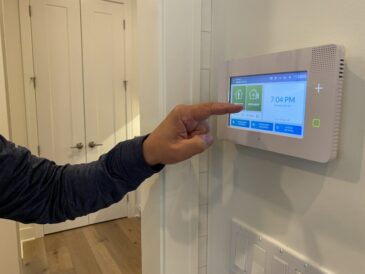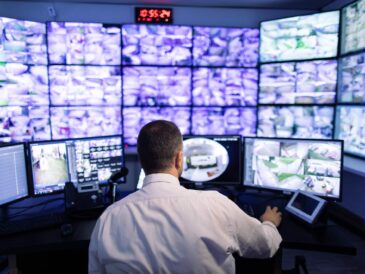Understanding Alarm Response Security
Alarm response security is an essential aspect of modern safety and security systems, designed to protect homes and businesses from intrusions and emergencies. When an alarm is triggered, a series of actions are set in motion, aimed at assessing the situation and ensuring the safety of individuals and property. This article delves into the intricacies of alarm response security and what happens when an alarm goes off.
The Role of Alarm Systems
Alarm response security serve as the first line of defence against potential threats. They are equipped with various sensors that detect unauthorised access, smoke, fire, or other emergencies. Upon detection, the system activates the alarm, alerting occupants and, in many cases, a monitoring service.
Modern alarm systems can be integrated with smart technology, allowing users to monitor their premises remotely. This capability enhances the effectiveness of alarm systems, as users can receive real-time alerts, enabling them to respond promptly to any situation. Furthermore, many systems now offer mobile applications that provide a user-friendly interface for managing security settings, viewing live camera feeds, and even interacting with smart home devices, creating a cohesive security ecosystem.
Types of Alarm Systems
There are several types of alarm systems available, each designed to cater to different security needs. Intruder alarms, fire alarms, and environmental alarms are among the most common. Intruder alarms typically utilise motion sensors and door/window contacts, while fire alarms rely on smoke detectors and heat sensors. Environmental alarms can monitor for hazards such as carbon monoxide or flooding.
Choosing the right type of alarm system is crucial for ensuring comprehensive protection. Homeowners and business operators should evaluate their specific risks and select a system that addresses these vulnerabilities effectively. For instance, a commercial property may benefit from a more complex setup that includes CCTV surveillance and access control systems, while a residential setting might prioritise simple yet effective intruder alarms. Additionally, the integration of alarm systems with local emergency services can significantly reduce response times, providing an added layer of security and peace of mind for users.
What Happens When an Alarm Goes Off?
When an alarm is triggered, a well-defined protocol is initiated to assess the situation and respond appropriately. The following steps outline the typical process that occurs when an alarm goes off.
Immediate Notifications
The first response to an alarm activation is the immediate notification of the relevant parties. This typically includes the property owner, any designated contacts, and the monitoring service. Notifications can be sent via various channels, including phone calls, text messages, and mobile app alerts.
Quick notifications are crucial, as they allow property owners to assess the situation and determine whether a response is necessary. In many cases, the monitoring service will attempt to contact the property owner to verify the alarm before taking further action.
Verification of the Alarm
Once the alarm has been triggered, the monitoring service will often conduct a verification process. This may involve reviewing security camera footage, checking sensor data, or attempting to contact the property owner. The goal is to determine whether the alarm was triggered by a genuine threat or a false alarm.
False alarms can occur due to various reasons, such as equipment malfunction or user error. Therefore, verification is a critical step in ensuring that emergency services are only dispatched when necessary, thereby reducing unnecessary strain on resources.
The Role of Emergency Services
If the alarm is verified as a legitimate threat, emergency services are contacted to respond to the situation. This may involve police, fire, or medical services, depending on the nature of the alarm.
Police Response
In the case of a burglary or intrusion alarm, the police will be dispatched to the location. They will assess the scene, looking for signs of forced entry or suspicious activity. The police response is crucial for deterring further criminal activity and ensuring the safety of any individuals on the premises.
Upon arrival, officers will often conduct a thorough search of the property. They may also take statements from the property owner or any witnesses to gather information about the incident.
Fire and Medical Response
For fire alarms, the fire brigade will be alerted immediately. Fire response teams are trained to handle various emergencies, from small fires to large-scale evacuations. Their prompt arrival can be the difference between minor damage and complete destruction.

In situations where medical emergencies arise, such as a health alert triggered by an environmental alarm, medical services will be dispatched to provide immediate assistance. This ensures that individuals receive the care they need without delay. Click here to learn about monitored security: why it’s a must-have for high-risk areas.
Dealing with False Alarms
False alarms are a common occurrence in alarm response security, and they can lead to significant consequences for property owners. Understanding how to manage false alarms is essential for maintaining an effective security system.
Consequences of False Alarms
Frequent false alarms can result in penalties from local authorities, as they can divert emergency services from genuine emergencies. In some regions, repeated false alarms may lead to fines or increased response fees. This highlights the importance of ensuring that alarm systems are properly maintained and used.
Moreover, excessive false alarms can lead to complacency among emergency responders. If they frequently respond to false alarms, they may be less vigilant when responding to actual emergencies, potentially jeopardising safety.
Preventing False Alarms
To minimise the occurrence of false alarms, property owners should regularly maintain their alarm systems. This includes testing sensors, replacing batteries, and ensuring that all components are functioning correctly. Additionally, educating all users of the alarm system on proper usage can significantly reduce the likelihood of accidental activations.
Some alarm systems also offer features that can help reduce false alarms, such as user-friendly interfaces and remote monitoring capabilities. These features enable users to manage their systems more effectively, reducing the chances of errors.
Benefits of Professional Monitoring Services
Utilising professional monitoring services can greatly enhance the effectiveness of alarm response security. These services provide a layer of protection that can be invaluable in emergencies.
24/7 Monitoring
One of the primary advantages of professional monitoring is the round-the-clock surveillance it offers. Trained operators are available 24/7 to respond to alarms, ensuring that help is dispatched promptly, regardless of the time of day or night.
This constant monitoring can provide peace of mind for property owners, knowing that their premises are being watched over even when they are not present. In the event of an alarm, the monitoring service can act quickly, often within seconds, to assess the situation and alert the necessary authorities.
Expertise and Experience
Professional monitoring services employ trained personnel who possess the expertise to handle various emergency situations. Their experience allows them to assess alarms accurately and determine the appropriate response.
In addition, these services often have established relationships with local emergency responders, which can facilitate a quicker response time. This level of coordination can be crucial in critical situations where every second counts.

Conclusion
Alarm response security plays a vital role in safeguarding homes and businesses. Understanding the processes involved when an alarm goes off can help property owners make informed decisions about their security measures. From immediate notifications to the involvement of emergency services, each step is designed to ensure safety and security.
While false alarms can pose challenges, proper maintenance and user education can significantly reduce their occurrence. Furthermore, professional monitoring services provide invaluable support, offering 24/7 surveillance and expert response capabilities.
Investing in a reliable alarm system and understanding its response protocols is essential for anyone looking to enhance their security. By taking proactive measures, individuals can protect their property and ensure peace of mind.




